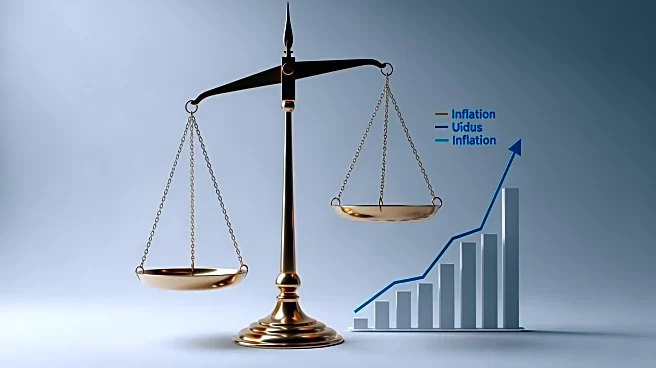What's Happening?
Inflation is defined as the ongoing increase in the general price level of goods and services in an economy over time. It is measured by tracking the prices of a wide range of items, which are organized
into categories such as transportation and apparel. Government statistical agencies collect this data to create price indexes, which indicate whether inflation is occurring. Inflation is not simply a rise in the price of one or two items but involves a broad increase in prices across many goods and services.
Why It's Important?
Inflation affects the purchasing power of money, impacting consumers' ability to buy goods and services. It can influence economic decisions, such as spending and saving, and affect the overall economic growth. Understanding inflation helps policymakers and economists devise strategies to manage its effects, ensuring economic stability. For consumers, awareness of inflation trends can guide financial planning and investment decisions.
What's Next?
Monitoring inflation trends will continue to be crucial for economic policy. Government agencies will keep collecting and analyzing price data to provide accurate inflation measurements. Policymakers may adjust fiscal and monetary policies to manage inflation, aiming to maintain economic stability and growth.
Beyond the Headlines
Inflation can have varied impacts on different economic sectors and social groups. For instance, fixed-income earners may struggle more during high inflation periods, while asset holders might benefit from increased asset values. Understanding these dynamics is essential for crafting inclusive economic policies.











